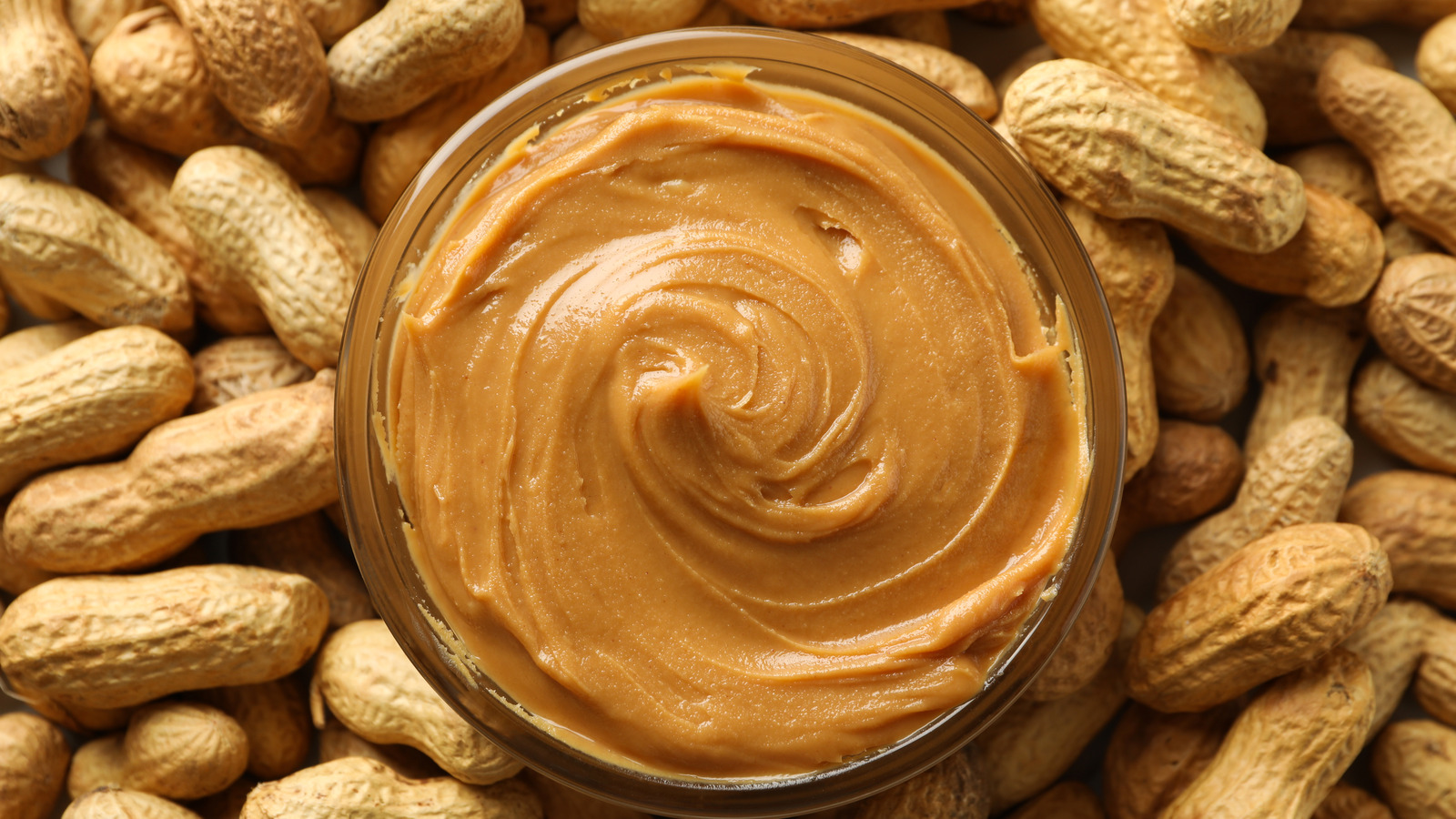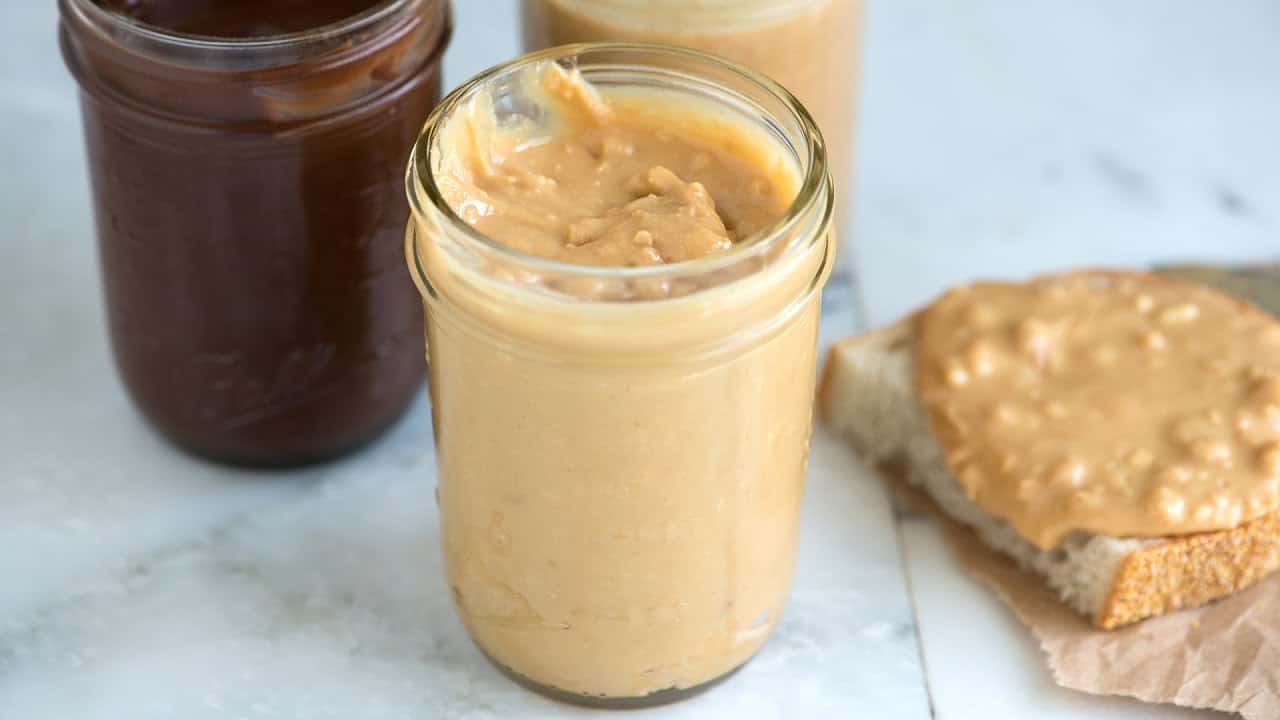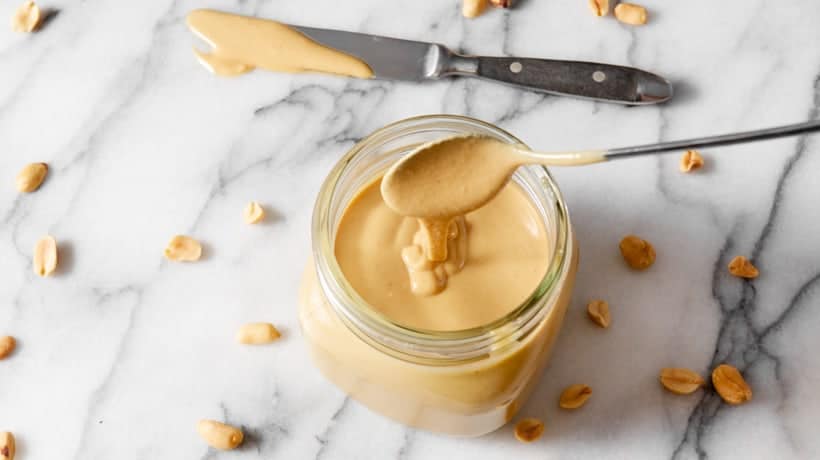Peanut butter, the creamy, savory spread that’s been a staple in American pantries for generations, is more than just a tasty treat. This humble jar of goodness is packed with an impressive array of nutrients that can support various aspects of health, from building strong muscles and promoting heart health to managing blood sugar levels and aiding in weight loss. In this article, we’ll dive deep into the science-backed health benefits of peanut butter and explore how you can incorporate this delicious superfood into your diet for optimal wellness.
The Nutritional Profile of Peanut Butter: A Powerhouse of Essential Nutrients
Before we delve into the specific health benefits of peanut butter, let’s take a closer look at what makes this spread so nutritious. A two-tablespoon serving of smooth peanut butter (approximately 32 grams) contains:
- Calories: 190
- Protein: 7 grams
- Total fat: 16 grams (includes 3 grams of monounsaturated fat and 2 grams of polyunsaturated fat)
- Carbohydrates: 7 grams
- Fiber: 2 grams
- Vitamin E: 3 milligrams (15% of the Daily Value)
- Magnesium: 50 milligrams (12% of the DV)
- Phosphorus: 100 milligrams (10% of the DV)
- Zinc: 0.85 milligrams (8% of the DV)
- Niacin: 4 milligrams (20% of the DV)
- Vitamin B6: 0.2 milligrams (10% of the DV)
As you can see, peanut butter is an excellent source of protein, healthy fats, fiber, and various micronutrients that are essential for overall health and well-being. The protein in peanut butter is particularly noteworthy, as it can help support muscle growth, tissue repair, and satiety.
Peanut butter is also rich in monounsaturated and polyunsaturated fats, which are considered “good” fats due to their potential heart health benefits. These healthy fats can help improve blood cholesterol levels, reduce inflammation, and lower the risk of heart disease and stroke.

Furthermore, the fiber content in peanut butter can promote digestive health, improve bowel regularity, and support the growth of beneficial gut bacteria. The various vitamins and minerals found in peanut butter, such as vitamin E, magnesium, phosphorus, and B vitamins, also play crucial roles in maintaining optimal bodily functions.
Peanut Butter for Muscle Building and Repair
One of the most well-known health benefits of peanut butter is its ability to support muscle growth and repair. The high protein content in peanut butter makes it an excellent choice for athletes, bodybuilders, and anyone looking to build or maintain lean muscle mass.
When you consume protein-rich foods like peanut butter, your body breaks down the protein into amino acids, which are then used to repair and rebuild muscle tissue damaged during exercise. This process is crucial for muscle recovery and growth, as well as for maintaining overall muscle health.
In addition to its muscle-building properties, the protein in peanut butter can also help promote feelings of fullness and satiety, which can be beneficial for weight management. By including peanut butter as part of a balanced diet and regular exercise routine, you can support your fitness goals and maintain a healthy body composition.
To maximize the muscle-building benefits of peanut butter, try incorporating it into your pre- or post-workout snacks. For example, you can spread peanut butter on whole-grain toast, mix it into oatmeal, or add it to a protein shake for a tasty and nutritious boost.
The Heart Health Benefits of Peanut Butter
Another significant health benefit of peanut butter lies in its potential to support heart health. The monounsaturated and polyunsaturated fats found in peanut butter, such as oleic acid and linoleic acid, have been shown to have protective effects on the cardiovascular system.
These healthy fats can help lower low-density lipoprotein (LDL) cholesterol, also known as “bad” cholesterol, while increasing high-density lipoprotein (HDL) cholesterol, or “good” cholesterol. This shift in cholesterol levels can reduce the risk of heart disease, stroke, and other cardiovascular problems.
Moreover, the plant-based compounds in peanut butter, such as resveratrol and phenolic acids, have antioxidant and anti-inflammatory properties that may further protect the heart and blood vessels from damage. Some studies have even suggested that regular consumption of nuts and nut butters, like peanut butter, may be associated with a lower risk of cardiovascular disease.
To reap the heart health benefits of peanut butter, it’s essential to choose varieties that are minimally processed and free from added sugars and hydrogenated oils. Natural peanut butter, which contains only peanuts and sometimes salt, is the best option for maximizing the cardiovascular benefits of this nutritious spread.
Peanut Butter and Blood Sugar Management
For individuals with diabetes or those looking to maintain healthy blood sugar levels, peanut butter can be a smart addition to the diet. Despite its creamy texture and sweet taste, peanut butter has a relatively low glycemic index (GI), which means it doesn’t cause rapid spikes in blood sugar levels.
The low GI of peanut butter can be attributed to its content of healthy fats, protein, and fiber, all of which help slow down the absorption of carbohydrates into the bloodstream. This gradual release of sugar can help prevent sudden increases in blood glucose levels, which is particularly important for people with diabetes.
Furthermore, the magnesium found in peanut butter may also play a role in blood sugar regulation. Magnesium is involved in the metabolism of carbohydrates and has been shown to improve insulin sensitivity, which can help the body better manage blood sugar levels.

When incorporating peanut butter into a diabetes-friendly diet, it’s crucial to pay attention to portion sizes and choose varieties with no added sugars. Pairing peanut butter with low-GI foods, such as whole-grain bread, celery sticks, or apple slices, can further help stabilize blood sugar levels and provide a satisfying, nutritious snack.
Peanut Butter for Weight Management
Contrary to popular belief, peanut butter can be a valuable ally in weight management when consumed in moderation. While peanut butter is relatively high in calories due to its fat content, it also possesses several properties that can support healthy weight loss and maintenance.
Firstly, the protein and fiber in peanut butter can promote feelings of fullness and satiety, which can help reduce overall calorie intake. When you feel satisfied after eating, you’re less likely to snack on unhealthy foods or overeat at subsequent meals.
Secondly, the healthy fats in peanut butter can help you feel more satisfied with smaller portions. This is because fats take longer to digest than carbohydrates, providing a sustained release of energy and reducing feelings of hunger.
To effectively use peanut butter for weight management, it’s essential to practice portion control and be mindful of the other foods you pair it with. A good rule of thumb is to stick to one to two tablespoons of peanut butter per serving and to choose whole-food pairings like fruits, vegetables, or whole grains.
It’s also important to select peanut butter varieties that are minimally processed and free from added sugars and oils, as these can contribute to excess calorie intake and negate the potential weight management benefits.
Peanut Butter and Brain Health
The potential health benefits of peanut butter extend beyond physical fitness and heart health – this nutritious spread may also support brain function and cognitive performance. The healthy fats, vitamins, and minerals found in peanut butter play essential roles in maintaining optimal brain health.
The monounsaturated and polyunsaturated fats in peanut butter, particularly omega-3 fatty acids, are crucial for brain development and function. These healthy fats help maintain the structural integrity of brain cells and support the production of neurotransmitters, which are essential for communication between brain cells.
Peanut butter is also a good source of vitamin E, a powerful antioxidant that helps protect brain cells from oxidative stress and inflammation. This protection is important for maintaining cognitive function and reducing the risk of age-related cognitive decline.
Additionally, the B vitamins found in peanut butter, such as niacin and vitamin B6, play key roles in brain health. These vitamins are involved in the synthesis of neurotransmitters, energy metabolism, and the maintenance of healthy brain tissue.
To support brain health, try incorporating peanut butter into a well-balanced diet that includes other brain-boosting foods like fatty fish, berries, leafy greens, and whole grains. Remember, while peanut butter can be a nutritious addition to a brain-healthy diet, it should be consumed in moderation as part of an overall balanced eating plan.
Other Potential Health Benefits of Peanut Butter
In addition to the benefits already discussed, peanut butter may offer several other potential health advantages. While more research is needed to fully understand these effects, some promising areas of study include:
- Reduced risk of certain cancers: Some studies suggest that the antioxidants and plant compounds found in peanuts and peanut butter may help reduce the risk of certain types of cancer, such as colorectal cancer.
- Improved bone health: The magnesium, phosphorus, and protein in peanut butter can contribute to the maintenance of strong, healthy bones.
- Enhanced skin health: The vitamin E and other antioxidants in peanut butter may help protect the skin from sun damage and premature aging.
- Reduced inflammation: The monounsaturated and polyunsaturated fats in peanut butter have anti-inflammatory properties that may help reduce chronic inflammation in the body, which is linked to various health problems.

As with any food, it’s essential to consume peanut butter in moderation as part of a balanced, varied diet. While peanut butter can offer numerous potential health benefits, it should not be relied upon as a sole source of nutrition or a magic bullet for disease prevention.
How to Choose and Store Peanut Butter for Maximum Health Benefits
To maximize the health benefits of peanut butter, it’s crucial to choose high-quality, minimally processed varieties and store them properly. Here are some tips for selecting and storing peanut butter:
- Opt for natural peanut butter with minimal ingredients, ideally just peanuts and maybe salt. Avoid varieties with added sugars, hydrogenated oils, or artificial flavors.
- Check the nutrition label to ensure the peanut butter is free from trans fats and has a reasonable amount of sodium per serving.
- If you prefer a creamier texture, look for peanut butter that has been blended for a longer time or contains a small amount of palm oil, which is a non-hydrogenated oil that can help prevent separation.
- Store peanut butter in a cool, dry place, such as a pantry or cupboard. Avoid storing it in the refrigerator, as this can cause the oils to separate and harden.
- If your natural peanut butter separates, simply stir it with a knife or spoon to redistribute the oils before using.
- To prevent spoilage, always use a clean utensil when scooping peanut butter from the jar, and avoid introducing any moisture or food particles into the container.
By following these guidelines, you can ensure that you’re getting the most nutritional value and best taste from your peanut butter while minimizing any potential health risks.
Conclusion
Peanut butter is a delicious, versatile, and nutritious food that offers a wide range of potential health benefits. From supporting muscle growth and repair to promoting heart health, blood sugar control, and weight management, this humble spread packs a powerful punch.
By incorporating peanut butter into a balanced, varied diet and pairing it with other nutrient-dense foods, you can enjoy its many health benefits while satisfying your taste buds. Remember to choose minimally processed, high-quality peanut butter and consume it in moderation as part of an overall healthy lifestyle.
As with any food, individual needs and preferences may vary, so it’s always a good idea to listen to your body and consult with a healthcare professional if you have any specific concerns or health conditions. With a bit of creativity and mindfulness, peanut butter can be a tasty and nutritious addition to your diet, supporting your health and well-being one spoonful at a time.



